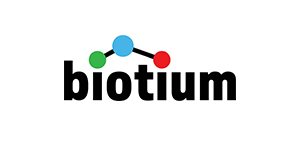p63 (Squamous, Basal & Myoepithelial Cell Marker)(TP63/1423R), 1mg/mL
p63 (Squamous, Basal & Myoepithelial Cell Marker)(TP63/1423R), 1mg/mL
Artikelnummer
BTMBNUM1423-50
Verpackungseinheit
50 uL
Hersteller
Biotium
Verfügbarkeit:
wird geladen...
Preis wird geladen...
Quote the promo code SZANTIBODY when ordering to receive a 10% discount on this antibody, from October 1st to December 31st 2024. No additional discounts during the promo.
Description: p63 is a homolog of the tumor suppressor p53. It is identified in basal cells in the epithelial layers of a variety of tissues, including epidermis, cervix, urothelium, breast and prostate. p63 was detected in nuclei of the basal epithelium in normal prostate glands; however, it was not expressed in malignant tumors of the prostate. As a result, p63 has been reported as a useful marker for differentiating benign from malignant lesions in the prostate, particularly when used in combination with markers of high molecular weight cytokeratins and the prostate-specific marker AMACR (P504S). p63 has also been shown to be a sensitive marker for lung squamous cell carcinomas (SqCC), with a sensitivity of ~90%. Specificity for lung SqCC, vs. lung adenocarcinoma (LADC), is approximately 80%. In breast tissue, p63 has been identified in myoepithelial cells of normal ducts. Primary antibodies are available purified, or with a selection of fluorescent CF® Dyes and other labels. CF® Dyes offer exceptional brightness and photostability. Note: Conjugates of blue fluorescent dyes like CF®405S and CF®405M are not recommended for detecting low abundance targets, because blue dyes have lower fluorescence and can give higher non-specific background than other dye colors.
Conjugate: Purified, BSA-free
Concentration: 1 mg/mL
Storage buffer: PBS, no BSA, no azide
Product Origin: Animal - Oryctolagus cuniculus (domestic rabbit)
Clone: TP63/1423R
Entrez Gene ID: 8626
Immunogen: Recombinant human p63 protein fragment
Verified AB Applications: IHC (FFPE) (verified)
Z-Antibody Applications: IHC, FFPE (verified)
| Artikelnummer | BTMBNUM1423-50 |
|---|---|
| Hersteller | Biotium |
| Hersteller Artikelnummer | BNUM1423-50 |
| Verpackungseinheit | 50 uL |
| Mengeneinheit | STK |
| Reaktivität | Human, Mouse (Murine), Rat (Rattus) |
| Klonalität | Monoclonal |
| Methode | Immunohistochemistry |
| Isotyp | IgG |
| Wirt | Rabbit |
| Konjugat | Unconjugated |
| Produktinformation (PDF) | Download |
| MSDS (PDF) | Download |

 English
English







